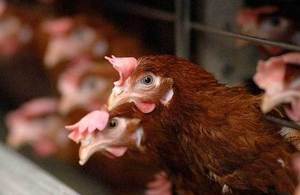Low severity Avian Flu outbreak in Hampshire
Restrictions have been lifted following the February 2015 case of Avian Flu on a Hampshire farm.

Chickens
Restrictions have now been lifted following an outbreak of Avian Flu on a Hampshire farm earlier this month.
The lifting of the restrictions means that all poultry keeping farms within the 1 kilometre restriction zone around the infected premises are now allowed to move poultry and other animals without restriction.
The low severity case of avian flu was confirmed in chickens at a farm in Hampshire on 2 February and robust action was taken to prevent any spread of the disease, which posed very low risk to human health. A 1 kilometre restriction zone was placed around the property.
The restrictions have been lifted 21 days after the completion of an initial cleaning and disinfection of the premises, which is the earliest point allowed under EU rules to end the controls.
Chief Vet Nigel Gibbens said:
Protecting our country from animal disease is important for our economy, and our robust and thorough approach to tackling this outbreak quickly means we have been able to lift these restrictions at the earliest possible point allowed by EU law.
This outbreak and the recent case in Yorkshire should serve as a reminder for the poultry industry of the importance of maintaining strict biosecurity to minimise the risk of infection, and I would urge keepers to remain vigilant for any signs of disease and report suspicions to their vet immediately.
Tests confirmed the outbreak in Hampshire as a low severity H7N7 strain of the disease, a different and much less severe form than the H5N8 strain found at a Yorkshire duck farm in November 2014.
All poultry on the premises were humanely culled and the affected farm was cleansed and disinfected to prevent the disease spreading.
Investigations suggest the most likely source of infection was indirect contact with infected wild birds.
No further cases of Avian Flu have been identified.
Anyone suspecting avian influenza should immediately contact their nearest Animal and Plant and Health Agency (APHA) office.
Further information
Updates to this page
-
Updated to reflect the lifting of restrictions
-
Updated to reflect that culling has now been completed
-
To reflect latest news that culling has began at the farm.
-
First published.